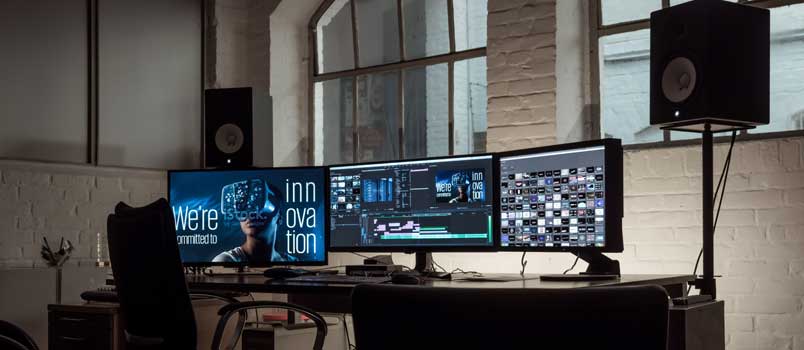Becoming a sound engineer can feel a bit like jumping off a cliff into a massive pool of unruly sound. It doesn’t take long to realize how hard it is to capture the noises we hear with our ears—let alone turn them into something listenable.
How do the pros get so good at capturing and manipulating sound?
It takes a lot of work to develop the skill and style needed to be a truly great sound engineer. And so much depends on the steps you take at the beginning of your journey. The tips below will get you started on the right foot.
1. Be Patient
Preparing to record is a bit like lining up thousands of dominoes. It takes trial and error, contemplation, and hours of tedious labor. Prepping a music recording space can take hours or even days. If you’re trying to record a Foley sound effect for a film, it might take an entire day to capture just one sound.
Of course, it’s a lot easier when you’re just using one mic and an acoustic guitar. But even then, you may need to change your setup a dozen times before it sounds just right.
Sound engineers who can’t handle the monotonous aspects of the job will start to cut corners. If you do this, you’ll never become great. In fact, a lack of patience is the primary reason most sound engineers fail to reach their potential.
Instead, do the opposite and take even more time to notice how each little change in mic position, equipment, etc. alters the outcome of the recording.
2. Don’t Worry about Mixing and Mastering…Yet
Mixing and mastering are important parts of sound engineering, but they don’t matter much unless you are adept at recording. It might be tempting to start playing with all those plugins for your DAW, but until you know how to properly record audio, those are just distractions.
Consider mixing, mastering, and recording to be three separate skills. Recording is the first one you need to learn, so spend most of your time practicing this skill as a beginner. Once you’re comfortable laying down tracks, you can move on to mixing and then, finally, mastering.
3. Avoid Marketing
Sound engineers handle the nuts and bolts of audio recording—not the PR stuff. So, keep your head out of the marketing clouds if you want to progress in your career.
Trying to sell yourself to big clients or make name for yourself won’t impress those with actual audio engineering knowledge. Fame and recognition are not valued in this profession. Value is found in skill. And the more time and money spent trying to gain street cred will take away from time spent developing your skills.
We’re not recommending that you hide in the closet or work for pennies. Just remember that in this field, your audio is more important than your image.
4. Read Manuals
You’ll be working with a lot of complicated equipment as a sound engineer. Even if you have experience with recording gear and apps, new tech is always popping up. Now that you don’t have a professor to tell you how to turn the dials and knobs, your best resource is the boring, black-and-white user manual.
The text can be dry and sleep-inducing, but a manual is a great place to learn about new features and expand your knowledge. Manuals contain tons of info, so make sure to take notes—yep, just like you’re back in school.
5. Start with Mono Recording
Recording with two mics is exactly 100% more difficult than recording with one. The more mics you add, the more variables you introduce in your studio space. Think of it like juggling. You can’t learn to juggle with three balls before you learn to do it with two.
As a beginner, start with a single mic and lay down some mono tracks. When you can produce high-quality mono recording, you’ll know it’s time to add another ball.
Your First Steps as a Sound Engineer
You may not be able to do much as a sound engineer yet, but your first steps are still very important. They will define your habits going forward—such as patience, dedication, and study. If you make these habits essential parts of your life from the start, you will become a master audio engineer in the future.





